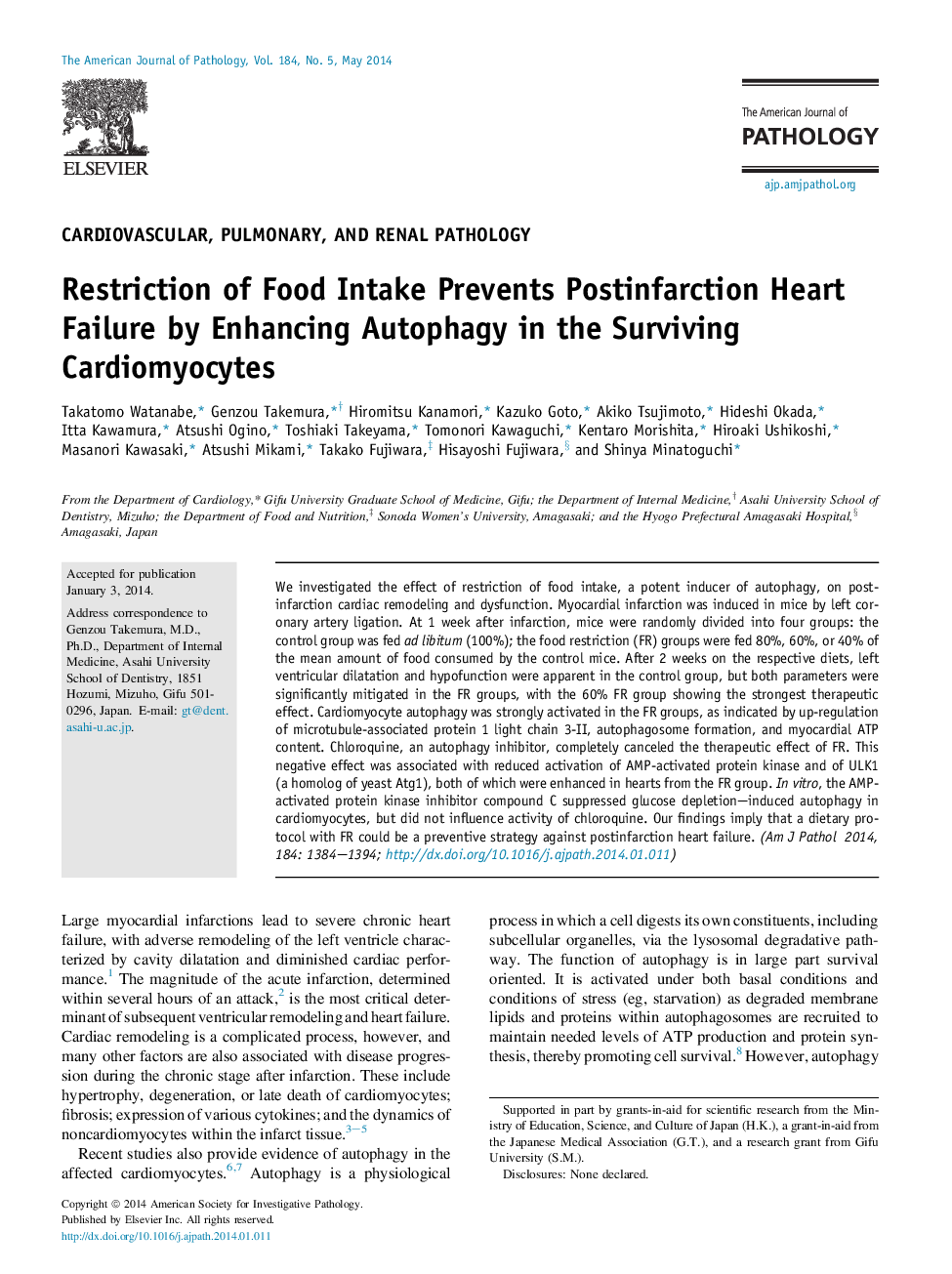| Article ID | Journal | Published Year | Pages | File Type |
|---|---|---|---|---|
| 5932430 | The American Journal of Pathology | 2014 | 11 Pages |
Abstract
We investigated the effect of restriction of food intake, a potent inducer of autophagy, on postinfarction cardiac remodeling and dysfunction. Myocardial infarction was induced in mice by left coronary artery ligation. At 1 week after infarction, mice were randomly divided into four groups: the control group was fed ad libitum (100%); the food restriction (FR) groups were fed 80%, 60%, or 40% of the mean amount of food consumed by the control mice. After 2 weeks on the respective diets, left ventricular dilatation and hypofunction were apparent in the control group, but both parameters were significantly mitigated in the FR groups, with the 60% FR group showing the strongest therapeutic effect. Cardiomyocyte autophagy was strongly activated in the FR groups, as indicated by up-regulation of microtubule-associated protein 1 light chain 3-II, autophagosome formation, and myocardial ATP content. Chloroquine, an autophagy inhibitor, completely canceled the therapeutic effect of FR. This negative effect was associated with reduced activation of AMP-activated protein kinase and of ULK1 (a homolog of yeast Atg1), both of which were enhanced in hearts from the FR group. In vitro, the AMP-activated protein kinase inhibitor compound C suppressed glucose depletion-induced autophagy in cardiomyocytes, but did not influence activity of chloroquine. Our findings imply that a dietary protocol with FR could be a preventive strategy against postinfarction heart failure.
Related Topics
Health Sciences
Medicine and Dentistry
Cardiology and Cardiovascular Medicine
Authors
Takatomo Watanabe, Genzou Takemura, Hiromitsu Kanamori, Kazuko Goto, Akiko Tsujimoto, Hideshi Okada, Itta Kawamura, Atsushi Ogino, Toshiaki Takeyama, Tomonori Kawaguchi, Kentaro Morishita, Hiroaki Ushikoshi, Masanori Kawasaki, Atsushi Mikami,
